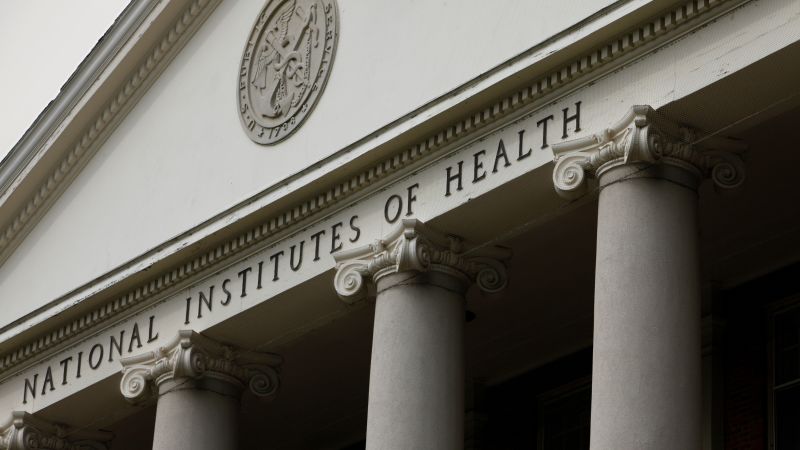In recent developments at the National Institutes of Health (NIH), research procurement faced interruptions due to a communication moratorium imposed by the Trump administration. This pause, announced last week, was directed by the acting director of the U.S. Department of Health and Human Services. It placed a hold on all public communication until February 1, which effectively halted various procurement activities, including the purchase of essential supplies for scientific studies. According to sources within the NIH, this moratorium included critical items, such as test tubes and feed for laboratory animals.
Despite the initial confusion and panic among NIH scientists—a number of whom faced stock shortages for ongoing clinical trials—an internal memo revealed that exceptions would allow for continued work with some current vendors. The memo, which was obtained by CNN, indicated that researchers could proceed with essential purchases if those vendors provided public documentation on behalf of the agency. This clarification aimed to alleviate the dire situation in which many researchers found themselves unable to procure vital supplies.
The hardships faced within the NIH during this time drew considerable scrutiny from both experts and insiders. Interviews with NIH researchers revealed that many studies were under severe threat due to this abrupt procurement freeze. For instance, one researcher expressed concern about running out of necessary supplies by the end of the week. The risk was not only to their ongoing research outcomes but also to the well-being of clinical trial participants housed at the NIH’s Clinical Trial Center, which serves as an on-campus hospital.
The dilemma escalated when researchers struggled to obtain essential items required for testing, such as test tubes for blood draws. Essentially, critical research processes were jeopardized, leading some employees to describe the week preceding the memo as the most challenging in their careers—an experience even more distressing than their work during the tumultuous COVID-19 pandemic. This sentiment was echoed by a seasoned NIH scientist, who remarked on the unprecedented nature of the current situation, likening it to a government shutdown rather than a simple administrative transition.
The situation morphed into a broader crisis that affected not only supplies but also staffing. Contractors who managed vital functions such as information technology and security were placed in similar jeopardy, as their contracts could expire during the procurement halt. This led to increased anxiety among employees, who were apprehensive about job security amid the upheaval, as renewing contracts would necessitate external communication that was currently restricted.
External experts weighed in on the chaotic environment, suggesting that it might be difficult to determine whether the situation arose from gross mismanagement or a deliberate effort to create disruptions. Dr. Peter Lurie from the Center for Science in the Public Interest articulated the sentiments of many, raising concerns about the implications of such administrative actions that ultimately affect public health and research integrity.
While the NIH strives to navigate these constraints, the narrative surrounding the communication moratorium is filled with intense feelings of uncertainty and dysfunction. Researchers, accustomed to a certain level of operational continuity, found the evolving directives both confusing and disheartening, and many believed the negative atmosphere hampered their ability to contribute meaningfully to science. As scientists relied heavily on their collaborations and procurement processes, the implications of the political climate on ground-level research were starkly evident.
In summary, the disruption in the NIH fundamentally highlights the vulnerability of research efforts to administrative shifts and underscores the essential nature of timely procurement in scientific exploration. Researchers not only contend with the pressures of their investigations but also with the unpredictable elements of policy, thus embodying the complexities of conducting science within the sphere of federal governance.
In light of these challenges, the affected scientists remain resilient, looking forward to clearer directives that can allow them to refocus on their critical work in advancing public health and medical research. Meanwhile, the ongoing situation serves as a poignant reminder of the delicate balance between governance, policy, and the practical necessities required to sustain vital scientific endeavors.



